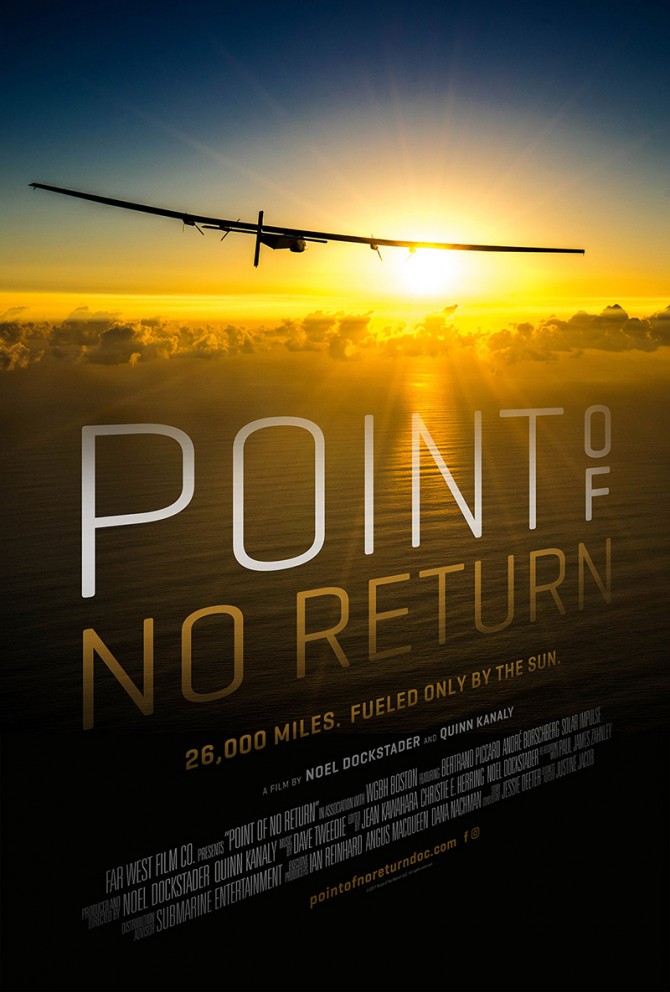Filmmakers discuss solar power in aviation
By Paul Russell
As Earth’s most abundant source of renewable energy, the sun can power much more than just calculators and garden lights. To decrease our reliance on fossil fuels, organizations around the world are exploring innovative ways to integrate solar power into new systems and industries.
Cornell’s Center for Sustainable Global Enterprise hosted a Q&A Oct. 29 with filmmakers Quinn Kanaly and Noel Dockstader; their “Point of No Return” (2017) follows Swiss pilots Bertrand Piccard and André Borschberg, who took the first solar-powered flight around the world, aided by a team of scientists and engineers on the ground. The project was rife with challenges, uncertainties and delays, but its success marks a major stride forward for the aviation industry and the clean-energy sector.
Capturing such a historic moment in real time, however, wasn’t easy. “You have to make the same commitment they’re making,” Dockstader said.
He and Kanaly had no definitive timeline and no ability to predict major changes to come throughout the process. They had to buy into the dream and follow the story, wherever it took them.
“This was such a fast-paced project, with everything happening in the moment,” said Kanaly, noting that the filmmakers couldn’t ask team members to redo a moment if they missed catching it on film.
Now Kanaly and Dockstader are using the film to teach students about sustainability, climate science and renewable energy.
The team has already secured grant funding to create a curriculum around the film for elementary, middle and high school students around the country. They aim to offer the hands-on, solutions-driven educational initiative free to underprivileged schools, to equip students of all backgrounds with the knowledge and tools to make a difference in the realm of clean energy.
At the heart of this initiative is a belief that Piccard and Borschberg’s flight is monumental – not only because of the technologies it introduced, but because it is evidence of the potential for more sustainable innovation in a variety of fields.
“This is not just about the future of aviation,” Kanaly said. “This is about what we can do in our daily lives with energy efficiency – with renewable energy. If we can make an airplane fly with solar energy, we can do a hell of a lot of other things.”
To them, the next generation of scientists, policymakers and businesspeople will play a critical role in bringing these “other things” to fruition.
Paul Russell ’19 is a writer for the Center for Sustainable Global Enterprise.
Media Contact
Get Cornell news delivered right to your inbox.
Subscribe

